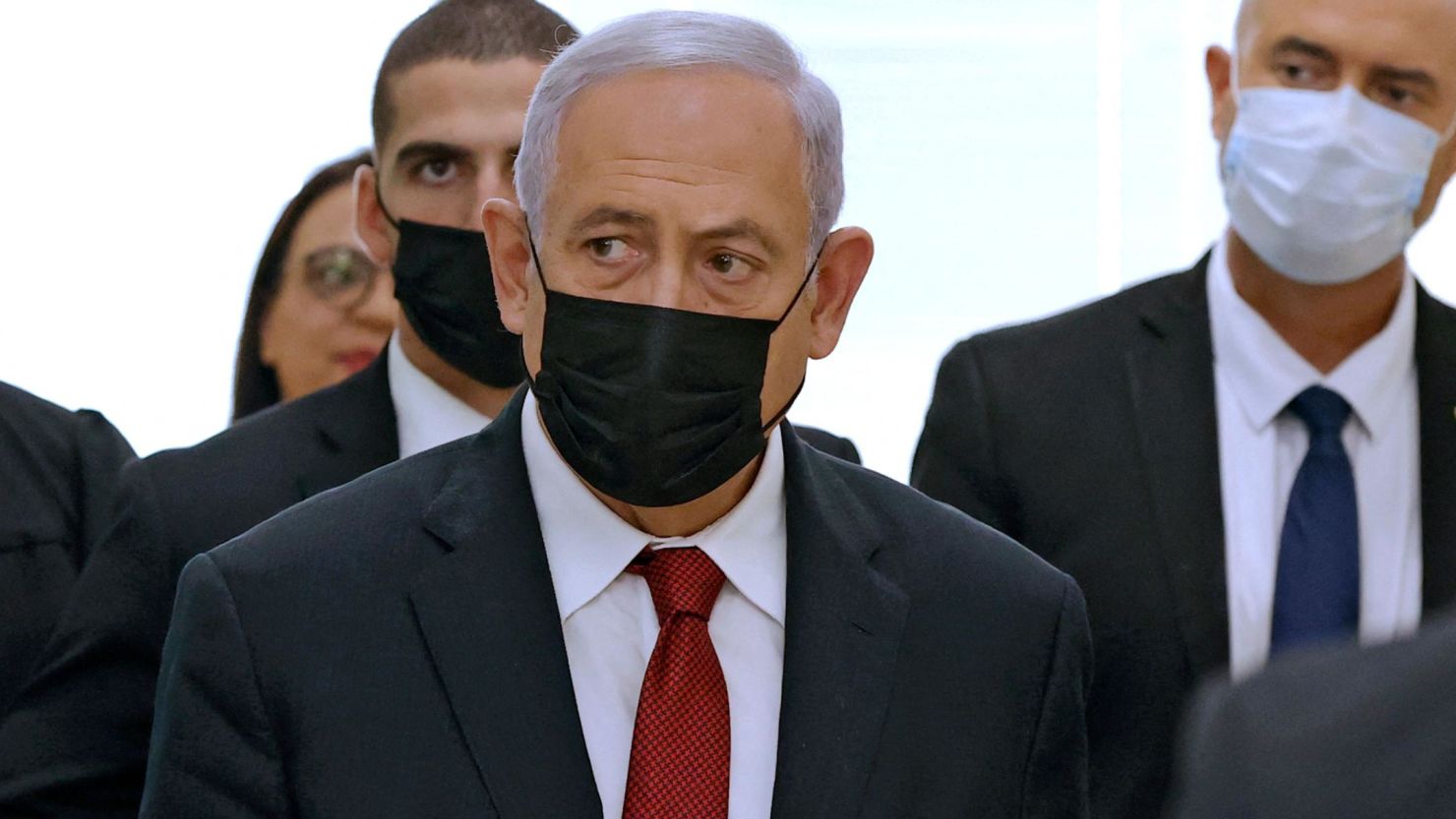For years, former Israeli Prime Minister Benjamin Netanyahu has called his ongoing corruption trial a “witch hunt” and an “attempted coup.”
Although his denunciations of the case echoed words often heard from his once-close ally Donald Trump, Netanyahu is now deviating from the former US president’s methods.
Netanyahu and his team have been discussing a possible plea deal with prosecutors in his corruption case, two sources close to the matter tell CNN.
The negotiations, if fruitful, could be finalized in the next few weeks, according to the sources, and would bring a surprising end to a years-long drama. Depending on the details of any eventual plea deal sentence, Netanyahu could be giving up politics for the next seven years.
Here’s what you need to know.
The charges
Netanyahu faces charges in three separate cases.
In Case 1000, he is charged with fraud and breach of trust in connection with allegations that he received gifts like cigars and champagne from overseas businessmen.
In Case 2000, he is also charged with fraud and breach of trust and is accused of seeking favorable coverage in one of Israel’s top newspapers in exchange for limiting the circulation of one of the paper’s main rivals.
In the most serious case, Case 4000, he is charged with bribery, fraud and breach of trust for allegedly advancing regulatory benefits worth the equivalent of more than $250 million at the time to his friend Shaul Elovitch, who was the controlling shareholder for the telecommunications company Bezeq. In return, the prosecution says, Elovitch ensured positive coverage of the Prime Minister in an online news site he owned called Walla! News. Elovitch has denied the charges.
The trial began in May of 2020 at the Jerusalem District Court and is in the midst of hearing from witnesses for the prosecution.
Moral turpitude
The possible plea deal would likely see the most serious charge of bribery dropped altogether, another charge of fraud and breach of trust watered down (in Case 1000), and one of the three cases completely shelved (Case 2000), according to information provided by the sources who are close to the negotiations.
But the sources say that a key point of disagreement is over the length of community service Netanyahu would receive for pleading guilty to the remaining charges, and whether that sentence carries with it the stain of moral turpitude.
If the sentence is longer than three months, then prosecutors can insist on the inclusion of moral turpitude, which would bar the 72-year-old Netanyahu from politics for seven years according to Israeli law.
Even if prosecutors choose not to include the moral turpitude label, a future election commission judge could still decide Netanyahu’s convictions and sentence barred him from politics for the same seven-year period.
It is different if the sentence is shorter than three months. In this situation there is a loophole according to Israeli law. If Netanyahu faces his sentence as a private citizen, which he could ensure by resigning his seat in parliament, the issue of moral turpitude would not be considered.
Why now?
Word of the possible plea deal comes just weeks before Attorney General Avichai Mandelblit is set to end his term on January 31.
Mandelblit was responsible for issuing the indictments against Netanyahu, following lengthy police investigations, and is largely seen as wanting to end his time in office with a successful conviction.
The next attorney general will be appointed by the new government, led by Prime Minister Naftali Bennett, and may be much less likely to offer such a plea deal to Netanyahu.
But critics – including hundreds of protesters who gathered outside of Mandelblit’s home on Saturday night – are pushing back against the deal. For them, anything less than a full a trial and sentence carrying with it the label of moral turpitude would be regarded as a failure, given the seriousness of pursuing cases against a serving prime minister.
Political reverberations
While at first glance it may seem like Netanyahu’s political opponents would be happy to see him take a plea deal in disgrace and leave the political arena, some Israeli analysts say such a move could shake the stability of the current government.
The new government, lead by former Netanyahu chief of staff Bennett, is a hodgepodge of political parties ranging from far-right parties like Bennett’s, to the left. It also includes the first Arab party to sit in government in Israel.
The glue that has bound those parties reflects a shared wish to end Netanyahu’s time as Israel’s longest serving prime minister. And for as long as he has remained in front line politics – as the leader of the opposition – it has held together well.
But if he were to exit the stage, it could provide an opening for a new coalition, made-up entirely of right-wing and religious parties, that could topple the current unity government.


